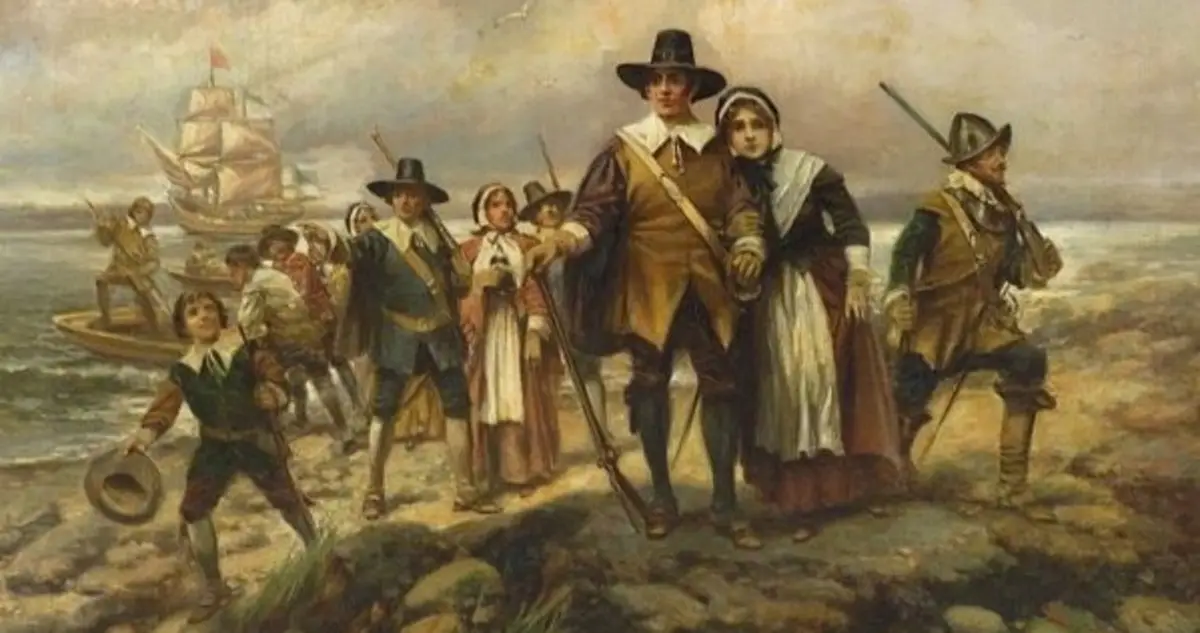The existing infrastructure and cultural norms in the West are increasingly hostile or incompatible with Christian values. In response to this reality many of us are turning towards the idea of building our own parallel infrastructure and communities, not unlike the pilgrims who were seeking new land and religious freedom during the early days of America. Unfortunately there is nowhere left to run to. Every country on earth is subjected to the globalist regime in one form or another and so we can’t just physically pack up our things, move to new lands, and form our own nation–at least not yet.
Thankfully with the power of technology we might not have to.
In the age of the internet the concept of community has transcended physical boundaries. Digital sovereignty refers to the idea that an online community, through its collective power and shared values, can establish a self-governing entity in the digital realm. Similar to traditional nation states, digital sovereign communities have their own governance structures, social norms, and economic systems. They strive to maintain autonomy and preserve the rights and interests of their members within the online space they inhabit.
The underlying motivation behind the pursuit of digital sovereignty lies in the desire for self-determination, or the ability to define and govern one’s own virtual environment. Digital sovereign communities develop their own codes of conduct, charters, or constitutions that outline the rights, responsibilities, and privileges of their members. In Gab’s case this is our Terms of Service, which is the only Terms of Service on the internet to offer First Amendment-protected free speech. Digital citizens enjoy certain freedoms within the community, such as freedom of expression, association, and participation in decision-making processes.
The rise of online communities as digital sovereign nation states presents a paradigm shift in how we conceptualize governance and community in the digital age. These virtual entities enable individuals to come together, exercise autonomy, and create alternative spaces that reflect their values and aspirations. As technology continues to evolve the boundaries between physical and digital realms blur, opening up new possibilities for self-governance, collaboration, and the formation of parallel digital societies.
A Digital Pilgrimage
In the early 17th century, England was undergoing religious and political turmoil. Dissatisfied with the Church of England and its practices a group of devout English Separatists, known as the Pilgrims, sought religious freedom and a chance to establish a community based on their beliefs. After fleeing to the Netherlands they yearned for a new home where they could practice their faith without persecution.
In 1620 the Pilgrims embarked on a perilous voyage across the vast Atlantic Ocean aboard the Mayflower. The journey was treacherous, with cramped conditions, seasickness, and harsh weather taking a toll on the passengers. Despite the hardships the Pilgrims found solace in their shared conviction and unwavering determination to create a better future for their families.
The Pilgrims’ story embodies the American spirit of resilience, determination, and the pursuit of freedom. Their quest for religious liberty and their willingness to brave the unknown laid the foundation for the American Dream.
In the digital age this pursuit takes on a different form: the creation of sovereign digital communities and parallel infrastructure. Christians are embracing digital communities and parallel infrastructure as a means of preserving their values, connecting with like-minded individuals, and fostering a sense of belonging in an ever-evolving world of chaos.
The Western world’s infrastructure and culture have undergone significant changes in recent decades. Traditional Christian values, once deeply rooted in society, are often marginalized or opposed. Institutions that were once pillars of faith are now challenged by secular ideologies and this includes many churches. Christians face a dilemma: how can we navigate a culture that no longer aligns with our beliefs while remaining faithful to our convictions?
In this context sovereign digital communities offer a powerful alternative. Just as the pilgrims sought new land to establish their own communities Christians are creating our own digital spaces that uphold and promote Christian values. Digital communities, like Gab, provide a platform for Christians to connect, share ideas, and support one another despite geographical limitations. These communities can transcend borders, time zones, and physical barriers, fostering a sense of belonging and mutual encouragement.
Building Parallel Infrastructure
Building parallel infrastructure is not about retreating from society or isolating oneself from the world. It is an intentional effort to create spaces where Christian values can flourish. Digital platforms allow Christians to establish online fellowship with one another, Bible study groups, prayer networks, commerce, and educational resources that cater specifically to our needs. By leveraging technology, Christians can reclaim the narrative and actively shape our own spaces of influence that are beyond the control of the enemy.
The success of digital communities relies on active participation and nurturing. Christians must foster an environment of fellowship, support, and discipleship within these digital spaces. This includes engaging in meaningful conversations, providing guidance and mentorship, supporting one another’s businesses and promoting unity among diverse perspectives while remaining steadfast in biblical principles.
Just as the pilgrims embarked on a journey in search of religious freedom, Christians who are embracing digital communities embark on a modern pilgrimage. It is a pilgrimage of faith where the pursuit of truth and the cultivation of Christian values take center stage. It is an opportunity to find like-minded individuals, to build networks, and to impact the world with the love and teachings of Jesus Christ.
As the existing infrastructure and cultural landscape in the West continue to dissolve Christians are faced with the challenge of preserving our values and maintaining a sense of community. Embracing digital communities offers a promising solution, allowing Christians to build parallel infrastructure and connect with fellow believers worldwide. Just as the pilgrims sought new land for religious freedom, Christians must now embark on a digital pilgrimage, carving out spaces where our faith can thrive. Through sovereign digital communities and parallel infrastructure, Christians can create meaningful connections, share resources, and impact the world for Christ in the digital age.
To God be the glory,
Andrew Torba
CEO, Gab.com
Jesus Christ is King of kings
Gab is currently selling shares in its business in a Regulation Crowdfunding investment round conducted pursuant to Section 4(a)(6) of the Securities Act of 1933. Click here to be directed to the crowdfunding portal to learn more about the offering.






